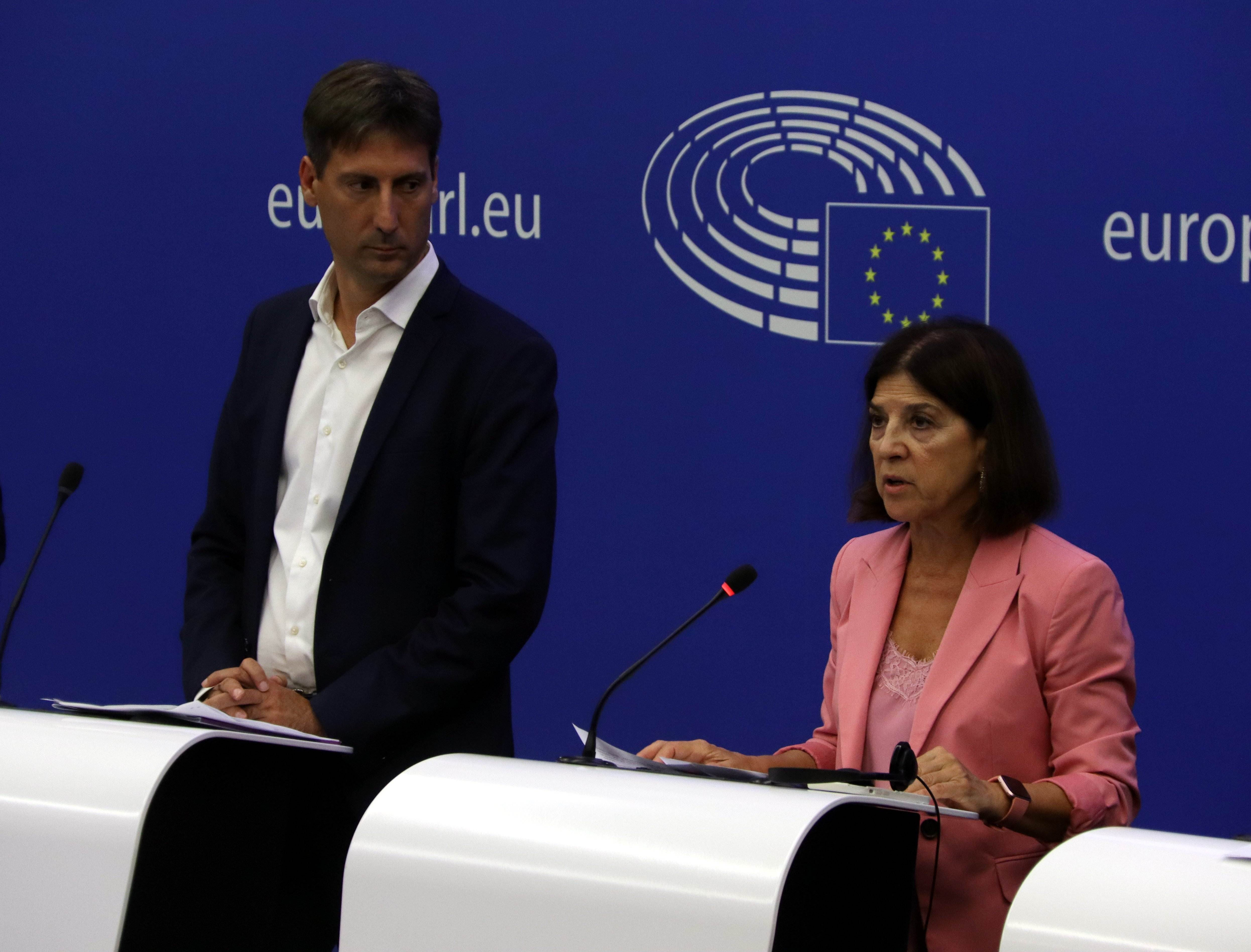With an amnesty law and the principle of self-determination as key elements in the Catalan pro-independence parties' negotiations for a possible investiture of Pedro Sánchez as leader of a new Spanish government, and also with the focus on the European Union in the face of the possibility of Catalan becoming an official language, this Tuesday a proposal to regulate the right to self-determination was presented in Strasbourg. Those who presented the proposal to the European Parliament were the members of the Self Determination Caucus, a group with origins in different political parties that defend this right throughout Europe, among whom is Jordi Solé, MEP for the Catalan Republican Left (ERC) and member of the Greens, Izaskun Bilbao, of the Basque Nationalist Party (PNV) which belongs to the Renew group, and François Alfonsi, a pro-independence Corsican from the Femu a Corsica party. This press conference was also attended by Elisenda Casanas and Xelai Nikolas, two of the experts who drafted the proposal.
When "a sub-state community" seeks self-determination
As the proposal sets out, it is concerned with "the democratic exercise of self-determination by a sub-state community within the European Union". When such a case arises, says the proposal, it must in the first instance be addressed and resolved "under the constitutional requirements of the Member States, within the broader context of the EU’s principles and values" - that is, the Self Determination Caucus acknowledges that, in a situation like that of the Catalan independence movement, the constitution of the member state, in this case Spain, will determine the initial way of addressing the issue. But as ERC European representative Jordi Solé stressed, processes of self-determination are not only an internal matter for the member states, as has often been suggested, but they go further and also have a European dimension: "These processes take place within the European Union and the result may imply a change in its configuration", he explained.
This European dimension, as the proposal states, "requires the establishment of a European legal framework to ensure the equal protection of citizenship rights and freedoms in cases where a sub-state community, in compliance with the constitutional requirements of a Member State, expresses a wish to separate from the Member State and remain within the EU." Elisenda Casanas, one of the experts behind the proposal, pointed out that when a "sub-state community" wants to separate from the state but continue to be part of the European Union, there is no clear legislation in this regard at EU level, which creates a "risky" situation for citizens. The proposal thus responds to this uncertain landscape, she says, while at the same time normalizing the democratic process which self-determination should be.
EU treaties would not have to be modified
The experts who drafted the proposal clarified this Tuesday that it is simple to apply and has been carefully written to avoid interfering with the sovereignty of member states. Elisenda Casanas and Xelai Nikolas also underline that if it is approved - a step which is expected to be difficult - it would not mean having to modify the Union's treaties, one of the points that could generate most concern and controversy, which is why the experts touched on it on several occasions during the press conference.
The Self Determination Caucus's proposal on regulating the right to self-determination includes different elements. The first directly concerns the Union, which needs to provide a "democratic framework that guarantees that its values and principles are respected during the processes", from respect for the rule of law to the prohibition of the abuse of power. In the same way, rights and freedoms must also be guaranteed, as well as the principle of non-discrimination, and at the same time, the legitimacy of the claim to self-determination must be verified, in what this group dubbed as a "legitimacy check" at all phases - from the legitimacy of the community's claim to sovereignty, to the legitimacy of the democratic decision by the sub-state to become independent. The proposal also requires the EU to provide legal certainty throughout the process - including in the case that citizens choose to be independent of the EU.
And what about conflict? The proposal emphasises the need to handle such aspirations to self-determination in a context of "maintaining cooperative relations between the State and the sub-state community". "This is an essential factor that facilitates the democratic management of self-determination process". However, the framework of guarantees set out by the proposal also foresees the intervention of the EU’s institutions and bodies as mediators in cases of conflict between the sub-state community and the member state. This is necessary, says the proposal, "in order to prevent the potential breach of the EU’s principles and values". Furthermore, the EU has a long experience of diplomatic intervention in conflict resolution outside its borders: "it would be paradoxical not to apply this conflict resolution know-how within the EU borders where such internal conflicts arise."

